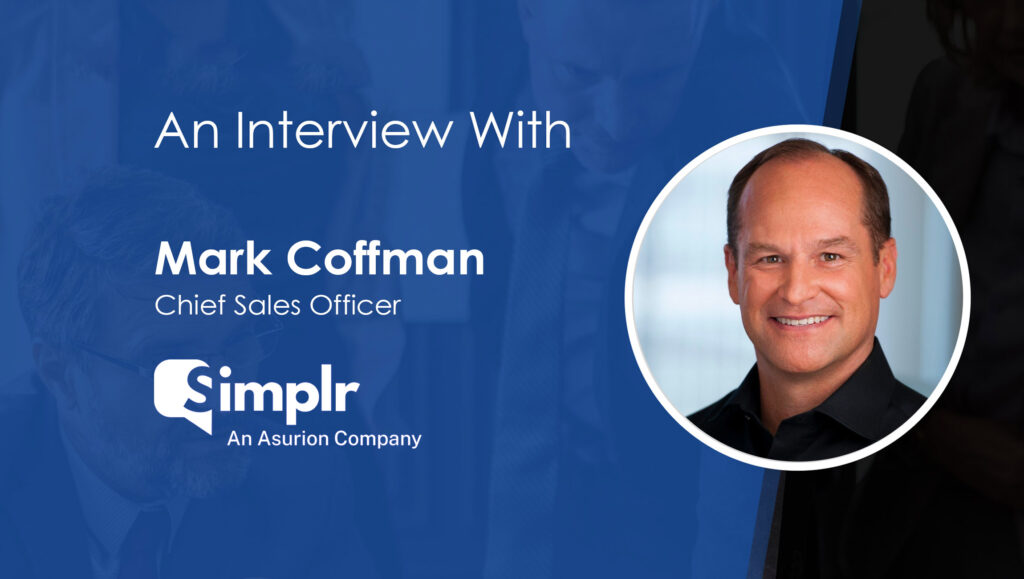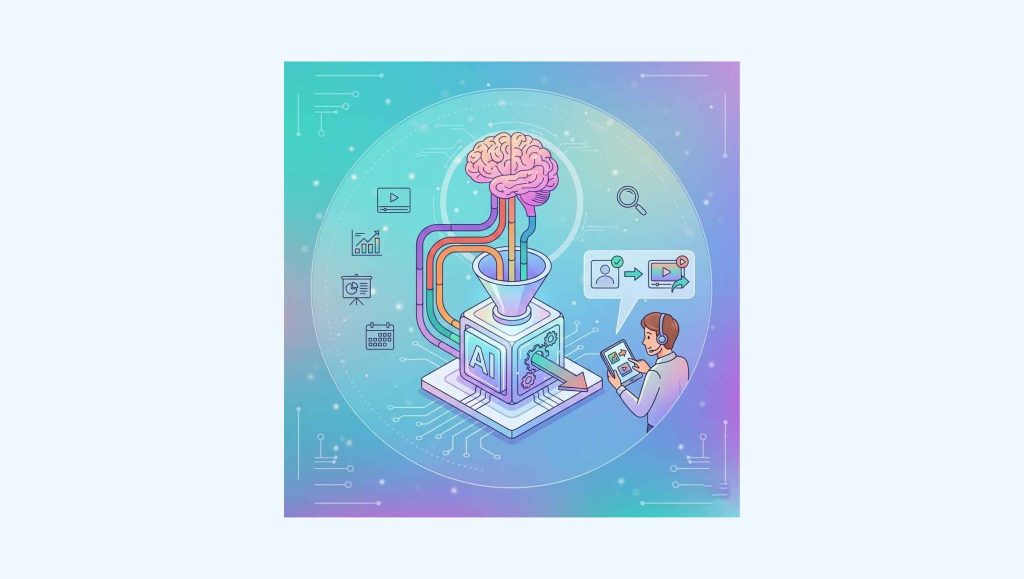Mark Coffman, Chief Sales Officer at Simplr chats about the key shifts in B2B buying and selling environments in this short catch up:
__________
Welcome to this SalesTechStar chat Mark, tell us more about your sales/revenue roles and journey so far and more about your new role as CSO at Simplr?
Thanks for having me. I’m really excited to have joined Simplr as their first chief sales officer. My background is in leading sales, revenue, and go-to-market organizations for high-growth technology startups. Simplr is an incredible opportunity for me to take what I’ve learned from those previous experiences and apply it to a company that truly has breakthrough potential.
Through the CX platform the company has developed, Simplr has been successfully disrupting both the BPO space and the current set of customer service chatbot vendors, securing high-profile customers like RBI (parent company to Burger King and Popeyes), The North Face, and YETI along the way. I can’t wait to get going and help them continue their incredible growth trajectory.
When it comes to driving global sales in today’s evolving hybrid market: what do you feel sales teams/sales leaders need to drive impact in a shorter timeframe?
Regarding today’s hybrid working model, I still find in-person interactions, when appropriate, to be the best way to develop real relationships with customers and prospective customers. It must be safe and sanctioned, but I’m a huge proponent of the fact that we are still people selling to other people.
Regardless of work models, learning and iteration are key to accelerating sales cycles and driving impact in a shorter time frame. If the entire company is constantly taking input from the market about what buyers are looking for, and what macroeconomic circumstances are potentially impacting buyers, then you’re setting a strong foundation for sustained growth. Along similar lines, go-to-market organizations must have a process in place by which they can learn about what is and isn’t working in every single sales and customer-facing interaction, and then use those insights to improve.
Ultimately, you can’t improve what you don’t know. Startups that can learn most effectively and implement changes with the greatest agility will win far more than they lose.
Read More: SalesTechStar Interview with Grant Peterson, Chief Product Officer at Conga
Can you talk about some of the most innovative sales methodologies that you’ve relied on and that you see leading brands turn to often to boost overall sales growth and business output?
Methodologies certainly have their place, but there are other, more overarching principles that I would argue are more important. First, sales professionals must exhibit massive attention to detail. There can be no inconsistency in what they are communicating to prospects, and every conversation must be perfectly tailored to the prospect’s unique needs. Second, urgency is a salesperson’s best friend. Successfully finding ways to demonstrate that the prospect can not afford to wait until the next quarter or next year is the most effective way to generate consistent revenue. Finally, professionalism and confidence go a long way. There is a fine line between confidence and arrogance, but sales organizations must enable their sales team to go into every meeting with the utmost confidence in the product or service.
I would argue that these principles are actually fairly unique and innovative in today’s sales environment precisely because they require no bleeding-edge methodology or complex technology stack. One issue I have with sales processes today is that they rely too heavily on technology. As I mentioned earlier, we’re still people selling something to other people. Sales organizations need to get back to establishing frameworks that allow their salespeople to talk to other humans with utmost authority, respect, and confidence.
What are some of the common challenges you still see B2B sales people struggle with today, despite access to a range of salestech tools and data?
In my experience, three things need to be fully aligned to have a successful, productive sales organization. You need to have incredible people; the performance conditions (i.e. how the rest of the organization enables sales) need to be conducive to success; and you must identify the right metrics to measure success and use them to improve constantly. If those three things are in place, then the foundation is there to scale a highly effective sales organization. If they aren’t, no amount of technology or data can help.
Read More: Lessons in Pay Transparency: What Businesses Can Learn from Sales Teams
A few thoughts on the future of the B2B sales market?
The reason why I joined Simplr is because consumer expectations have changed so much in recent years. Quite simply: if you aren’t able to offer an exceptional customer experience every single time, your customers will look elsewhere. CX leaders are recognizing this and are looking for disruptive solutions that will help them better meet the “NOW Customer’s” expectations. Platforms like Simplr have been built for this new world, and the market is starting to take notice.
A similar shift has happened in the B2B buying experience. B2B CX often starts with sales interactions, and buyers now expect a high level of personalization and empathy from B2B salespeople. Similar to how Simplr helps deliver personalized and productive consumer interactions, in today’s environment, B2B salespeople need to constantly deliver value, act with integrity, and exhibit empathy in every single conversation.
But it’s not a one-way street. At Simplr, we call our customers “partners” because we intend to enter into a true partnership with them, meaning we expect a high level of collaboration, communication, and transparency. It is only under these conditions that both sides of the partnership can find true success, and I believe more B2B sales organizations will start thinking this way in the near future.
And finally, a few views on salestech as a segment and how you feel this space will shape up over the next few years?
I’m most excited about the tools that leverage metrics and analysis to open up new insights into the sales process. Software that can highlight areas of inefficiency and can identify friction points can be very instrumental to selling faster, more effectively, and at an overall lower cost (CAC). I expect that area of the sales technology market to really take off.
Simplr offers companies a human-first, machine-enabled customer experience solution that meets the demands of the NOW Customer across all digital channels.
Mark Coffman is the Chief Sales Officer at Simplr.
Missed The Latest Episode of The SalesStar Podcast? Have a quick listen here!
Episode 141: B2B Revenue Generation Tips with Marjorie Janiewicz, Chief Revenue Officer at Foursquare
Episode 140: Sales Enablement Tips for B2B Teams with Mark Magnacca, Co-founder and President at Allego
Episode 139: Decoding Enterprise Sales Fundamentals with Molly McKinstry, Head of Enterprise Sales, Calendly





















